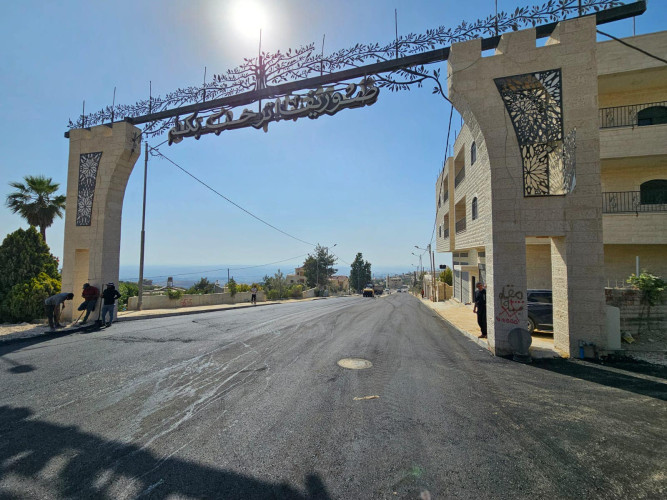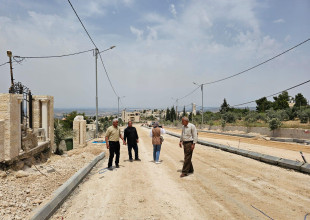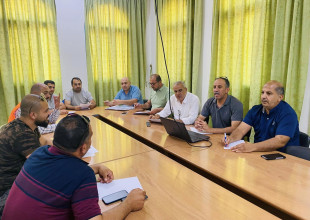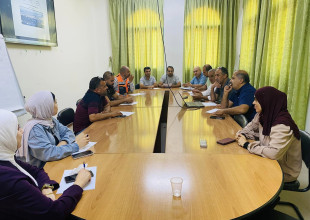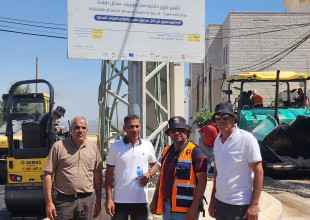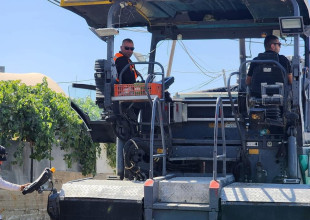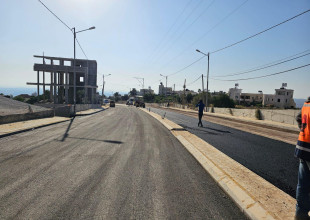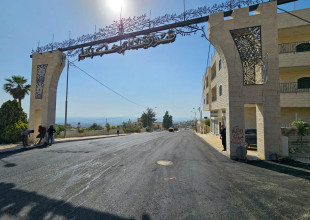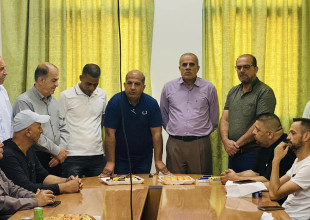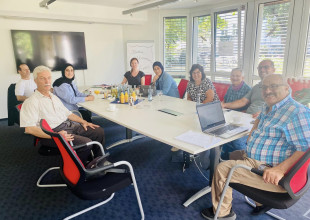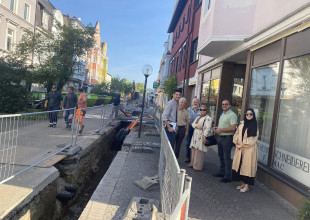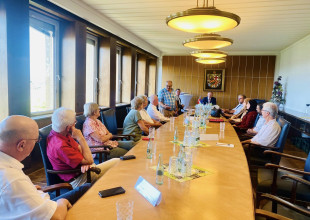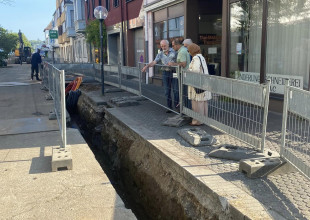Surif Municipality between the Israeli Siege and Service Sustainability Challenges
Prepared by: Surif Municipality
In conjunction with the violence and oppression inflicted by the Israeli occupying forces (IOF), settlers harass Palestinians, create facts on the ground, increase combat readiness, and get armed. Also, under protection of the IOF, settler attacks on Palestinians have outpaced all previous years.
Like most areas across the West Bank, this is the case in Surif in northern Hebron. Settlers from the Bat Ayin settlement, which is constructed on the town’s lands, carry out countless attacks. Settler crimes were not limited to storming citizens’ homes, but also extended to affect agricultural land. They set fire to 60 perennial olive trees, which were witnesses to the town’s history and community resilience. This attack is just one facet of a stark reality faced by Surif. While military checkpoints undermine geographical contiguity, the town is subject to recurrent raids, mass arrests, and land confiscation.

Due to these abuses, the economic crisis has deepened in Surif. For months, civil servants have not received their salaries. Palestinian workers have been trapped, unable to access their workplaces inside the Green Line. Israeli policies aim at crippling Palestinian economy and starve citizens.
The Surif Municipality plays a central role in meeting daily needs and managing affairs of the local community. Since the onset of the aggression against Gaza, the burden has multiplied due to the difficult security conditions created by the IOF. The aggression has not only affected Gaza, but extended to the West Bank cities and villages. Israeli policies are tailored to thwart any efforts to improve services or achieve development by seizing vehicles, destroying infrastructure, restricting water supplies, recurrently closing the entrances to cities and villages, and setting up checkpoints to impede the movement of citizens.



Under this tight siege and intensive attacks, the municipality plays an important role in ensuring continued basic service provision, alleviating economic hardship, and supporting citizens’ resilience on their land in the face of increasing challenges.
The municipality has demonstrated its commitment to public service by providing tangible support to affected families. It covered water and electricity bills by a monthly sum of NIS 100 per family and allowed recharge on credit to reduce financial burdens. In cooperation with the Zakat Committee, Orphans Committee, Sihtak Charitable Society and Surif Takya (Alms-house), the municipality distributed food parcels, medical supplies, and ready-to-eat meals to those in need. This emphasized the municipality’s role in strengthening social cohesion and mitigating the crisis.
Despite the daunting challenges created by the war on Palestine, the municipality has not saved an effort to harness all capacities for public service. It has doubled health efforts in spite of the substantial increases in the cost of waste transfer to the main dumpsite and difficulties posed by the closure of main roads, delaying waste transfer and increasing costs. Still, the municipality insisted to deliver this vital service. It also continued its efforts to maintain water and electricity supplies. In follow up on the education sector and in coordination with local teachers, the municipality organized free educational sessions for school students at the municipal library. This support was necessary to ensure the continuity of education in the difficult circumstance experienced by the town.

To support affected families, temporary employment opportunities were provided to those who lost their jobs in a variety of areas, including agricultural and construction. Every individual would work for 10 days a month. The initiative aimed to provide a source of income, cover essential needs, and promote the resilience of affected families in the face of harsh conditions.
Consequences of the aggression are not only physical, but also have a deep psychological bearing, particularly on children and women. Hence, the municipality has devoted considerable attention to psychosocial aspects. In addition to material and logistical support, psychological support sessions targeted children in collaboration with specialists, providing a safe space to express their fears and anxiety. Social and cultural activities were supported to strengthen community ties, sense of belonging, and solidarity, further contributing to alleviating psychological stress and unifying community in the face of challenges.
The municipality has long been at the forefront of institutions, supporting citizens and overcoming all challenges. This firm commitment reflects faith in the need for social cohesion and all forms of support to deal with hardship. Despite the war, the municipality continues to work for a better future, highlighting its leading role in resilience and challenge.

 Municipal services under siege
Municipal services under siege
 Gaza Strip
Gaza Strip
 West Bank
West Bank

